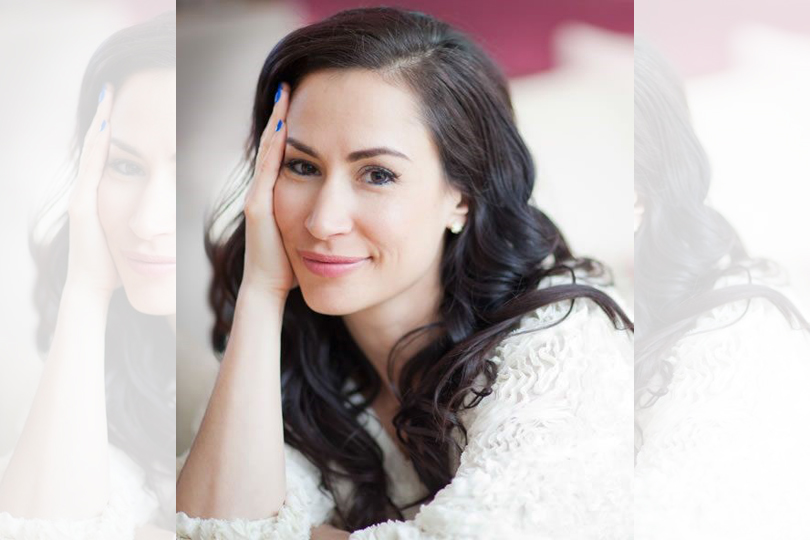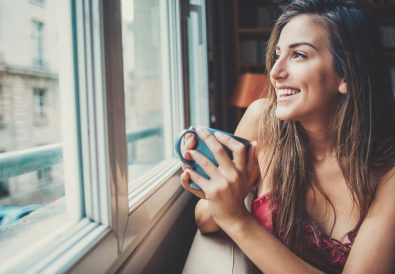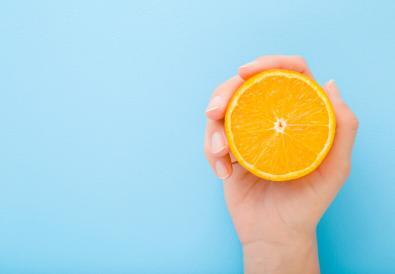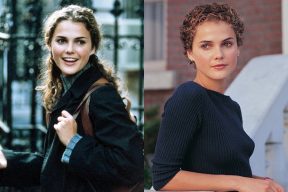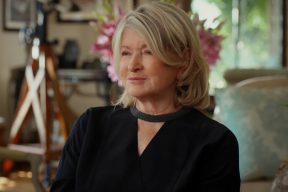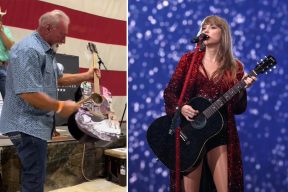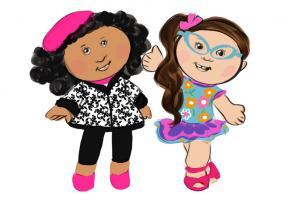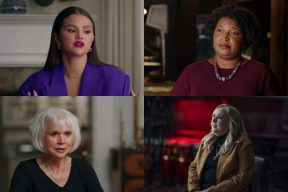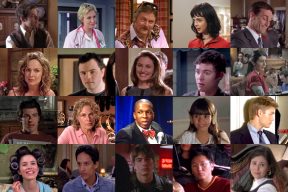Cynthia Loyst is a writer, producer, The Social co-host, and creator of the online destination Find Your Pleasure. She is also a self-described happy hedonist, professional sensualist, and unabashed pleasure-pusher. Her new book, Find Your Pleasure, is a deep dive into the pleasure revolution she has spent her career advocating for, and walks readers through finding the joy and pleasure in all aspects of life, from family to home to work to sex.
Be sure to snag a copy of the book here, and then read on as we chat about her career path, the pleasure gap between men and women, and her top tips on ditching all the guilt and shame that is associated with pleasure.
Could you briefly walk us through your career path? How did you get where you are today?
Ever since I was a child, I loved to write. I have a degree in screenwriting from the film and video department at York University. But I have also always been passionate about sexuality. While at York, I took courses in gender and sexuality and wrote a sex advice column.
My two passions converged when, in 1999, I began interning on an incredibly smart and edgy documentary series about sexuality around the world. I worked on that show for years, and eventually, I was able to move up the ranks to become an executive producer.
But around 2008 it was clear that the tides were shifting in television. As I watched many of my colleagues and friends ejected from this business, I decided to shift gears. I pitched a series about sexuality that I could both host and produce and was delighted and terrified when the show was green lit—I had never done anything in front of the camera before. But I dove in with both feet and after many embarrassing moments and cringe-worthy mistakes, this pain became a pleasure. In other words, I began to enjoy flexing a different set of muscles.
A few years later (when I was eight months pregnant) I was called in to do the audition for The Social and was hired shortly thereafter. And then about a year into doing that show I launched my website, Find Your Pleasure. I also have since gone on to obtain a sex educator certificate from the University of Michigan.
Have you always been passionate about the topic of pleasure? What led you to this “pleasure revolution” that we’re talking about here?
For as long as I can remember, I’ve been passionate about pleasure. But I also had a lot of shame and confusion about my passions and desires, especially when I was growing up. Many women I know have been raised with the message that to indulge is to become sloppy, messy, slutty and/or unruly (supposedly horrible characteristics!). I believe we need to challenge those messages. What I discovered is that a quest for deeply felt and guilt-free pleasures is not only an essential part of living a healthy life, but also necessary in order to become an empowered and contented woman.
Let’s talk more about your new book Find Your Pleasure: The Art of Living a More Joyful Life.What’s it all about?
I’ve been describing it as cookbook with recipes for life. It’s a deeply personal exploration of the many ways we can uncover both the big and small pleasures in our everyday lives. From food to relationships to creative ventures, I believe the world is teeming with opportunities to find pleasure if we’re awake and engaged enough to notice them.
 What inspired you to write it?
What inspired you to write it?
In the first year of becoming a mom, I realized that something was wrong. It was like was sleepwalking through a large part of my life. On top of that, I was drowning in lists and “must-dos” and a whole lot of mother guilt. It all came to a head one day at work when I ended up in tears—it’s a story I get into in the book—and it was a real wake-up call for me. I slowly began to get back into my body and my desires, which essentially led me back rediscovering and prioritizing my pleasure, and eventually, to writing this book.
When I began my website, women started reaching out to me who really found the messages resonated with them. They too felt like as they immersed themselves in parenting or partnerships or work, as a result, they felt they had lost a part of themselves. Since then, I’ve also been talking to men who have shared similar stories. So, I’ve realized that this idea of a pleasure deficit is clearly universal. I really wrote this book for anyone who feels like they are a little lost and wants to start living more passionately.
You’re known as a sex/relationship expert, but this book goes beyond romantic pleasure and looks at finding pleasure in all aspects of life, right? What are some examples?
I believe that every day there are opportunities for us to make a push for pleasure. As important as I think sexual pleasure is, it is obviously only one part of a pleasure-filled life. There are so many ways to tap into other everyday pleasures; it’s about the choices we make when it comes to the clothes we put on our bodies, the food we select to put into our bodies, the furniture we use in our home, and the way we use our time. It’s also about those bigger life pleasures, like parenting and relationships. The book looks at all these types of pleasures, big and small. I have also included little suggestions throughout it for “Pleasure Prompts” and “Pleasure Projects” to help inspire and provoke people to uncover where their passions lie.
What’s something you learned or that surprised you in the process of researching/writing this book?
I believe the pleasure is often positioned as the dirty cousin to happiness. Do a quick search on the word “pleasure” online, and you’ll often find it spoken about as suspect or dangerous… it’s a narrative that also tells us that indulgence is automatically a slippery slope to ruin. And I’m not suggesting that there aren’t vices that can be dangerous to our health. But people might be surprised to learn (as I discovered through my research) that pleasures can also have notable health benefits. One thing I have to mention are orgasms—which, for women especially, help with sleep, can reduce anxiety, combat stress, and so on. There is also some evidence that when we eat food that we savour deeply, that we actually digest it better, and that when patients have pleasurable views in hospital settings, they recover faster.
What are your top tips for finding pleasure the various aspects of our life?
One of my favourite tips in the book is related to the word: “Aaah.” First of all, just take a deep breath and exhale while saying “aaah.” Don’t you feel better already?
But it’s actually also an acronym for what I think is a great starting point for uncovering what brings you pleasure:
Awareness: What brings you pleasure is not necessarily what brings someone else pleasure. So, take a moment to ask yourself: what would you do if you had an unscheduled day? If money were no object? Those types of questions are just a start to get you thinking about passion and pleasure.
Attention: We spend lots of time with our faces buried in our phones, not to mention mundane activities that we mentally detach from, so attention is about tuning into our bodies as well as our imaginations.
Authenticity: We need to be honest with ourselves about who we are, and why we are drawn to and seeking out certain pleasures.
Help: Everyone struggles at times with feeling overworked and overwhelmed. Those are the times when we need to ask for help—carving out time for ourselves, even if it’s only a few minutes a day—creates pathways to pleasure.
What’s the pleasure gap between men and women? Why does this gap exist and what can be done to close it?
We talk a lot about the wage gap and not much about orgasm gap. There is some research that suggests that for every four orgasms a man has, a heterosexual woman might have one. This is something I feel that people don’t talk enough about. I believe it starts from when we are first taught about our bodies. Think about it: how often do we hear that boys have a penis and girls have a vagina, as if they are analogous to each other? When we only mention the birthing canal of a woman’s anatomy and fail to mention her pleasure centre (the clitoris!), I think this can set us up for a lifetime of dismissing our sexual pleasure.
I also believe that girls are still taught to be “pleasers,” which leads so many of us to put our desires on the back burner and prioritize our partner’s pleasure. Many of us have also been taught that men’s desires are different, more urgent, and in order for them “not to stray” we need to “take care of them.” In order for women to be equals in the bedroom, we need to encourage girls and young women to explore their own bodies, to use their voices and to prioritize pleasure. To me, pleasure also needs to be an essential part of the ongoing conversations around consent in the wake of #MeToo.
What are some of the mental health benefits of embracing a more pleasurable life?
Many psychologists will encourage a Zen Buddhist idea that is known as “beginners mind,” which is essentially mindfulness. The belief is that when we are fully engaged with our mind and our body we begin to see the world again like a child does—noticing and appreciated the tiniest details in life, which tends to not only calm a busy mind, but also can bring a newfound appreciation for the beauty that’s so pervasive in our world, if we are looking. But I think it is equally important to be “mindless” at times—to indulge in silliness and play and fantasy.

What would you say to the woman who struggles to remove the guilt surrounding pleasures relating to food, our bodies, parenting, etc.?
You are not defined by your dress size, or your kids, or your partnership. Only you get to decide what is important to you and how you want to live your life. Remember that a woman commanding pleasure for herself is an important and radical act, especially in a world that is constantly telling us to quiet our voices and bury our desires. If you won’t do it for yourself, do it for your daughters.
What is a typical day-in-the-life for you?
7:00 — Wake up, cuddle with my son and partner, make coffee.
7:15 — Try to do a bit of exercise and write for at least 5 minutes. Shower while breathing in eucalyptus. Such a brilliant tiny pleasure.
8:00 — Drive to work and listen to a podcast or music.
9:15 — Hair and makeup (and I usually write or think during this process too)
10:00 — We have a group meeting to discuss show topics
10:30 — Research and make notes for topics
11:30 — Studio rehearsal
12:30 — Touch-ups
1:00 — Live show
2:00 — Meet-and-greet with the audience
2:30 — Post-mortem with our boss
3:30 — Meetings with producers or agent
5:00 — Prepare for dinner
6:00-8:00 — Hang out with family, get my son into bed
9:00 — I am in bed with a book or a show. I adore my bed!
What is your favourite part about your job?
Television is made with teams and I feel so grateful for mine. Beyond my co-hosts (who have all become like sisters to me), we have an incredible crew behind the scenes—the producers, researchers, audience coordinator, camera people, editors, glam squad, etc., are all hyper-talented, and it’s a true honour to work alongside them every day.
What’s next for you?
2019 was a lot of inward exploration, so in 2020 I want more outward connection with the community, perhapsthrough pleasure events and volunteering. I’m also working on a pilot for a possible documentary series about pleasure…Stay tuned!
Is there anything else you would like to mention that we haven’t covered yet?
I would love it if your readers checked out my book in the New Year! It comes out on January 7 and I hope it brings a warmth and joy to an otherwise challenging time of year. And I hope to hear from people—there is nothing more pleasurable for me right now than connecting with others and hearing how they are finding pleasure in their lives.

